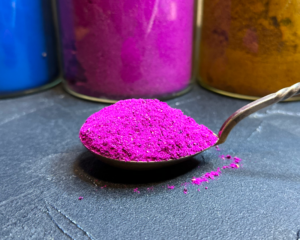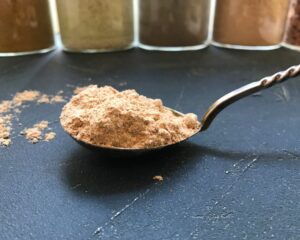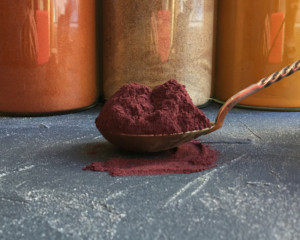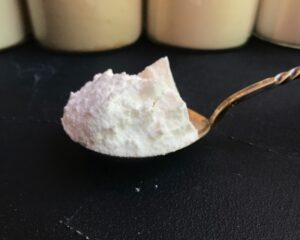Organic sumac
Sumac, derived from the berries of the Rhus family, is a spice known for its sour, lemony taste and deep red colour. This spice, popular in Middle Eastern cuisine, has a rich tradition and many health benefits, but like any ingredient, it must be used wisely.
Sumac is an important spice in Middle Eastern culinary traditions. It has been used for centuries as both a spice and a medicinal herb. Sumac is rich in antioxidants that help fight free radicals in the body. This property makes it potentially useful in reducing inflammation and protecting against chronic diseases. It is also thought to help lower blood sugar levels, making it a valuable supplement for diabetics.
Attention! Although sumac is safe for most people, those who are allergic to plants of the Anacardiaceae family (e.g. mangoes and Indian nuts) should be careful as they may also be allergic to sumac. Excessive intake can cause stomach upset in some people.
Usage:
Sumac is versatile in the kitchen. It can be sprinkled on salads and used to season various hot dishes. Sumac is often sprinkled on rice and used to add a sour flavour to various spice mixtures. It is an essential ingredient in za’atar seasoning and is also used to enhance the flavour of kebabs, hummus and other regional dishes. Because of its acidic taste, it is a good substitute for lemon juice or vinegar in sauces and marinades.
NB! The information provided here should not be interpreted as a recommendation for treatment or other types of health problems. We recommend that you make personal health decisions after evaluating different sources of information.
100% organic sumac
-
Store in a dry, cool place out of direct sunlight.










